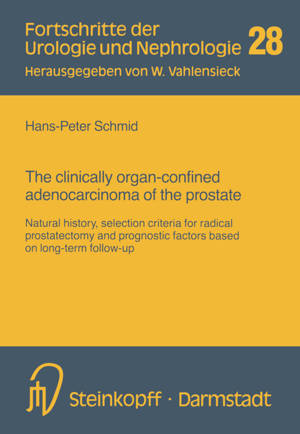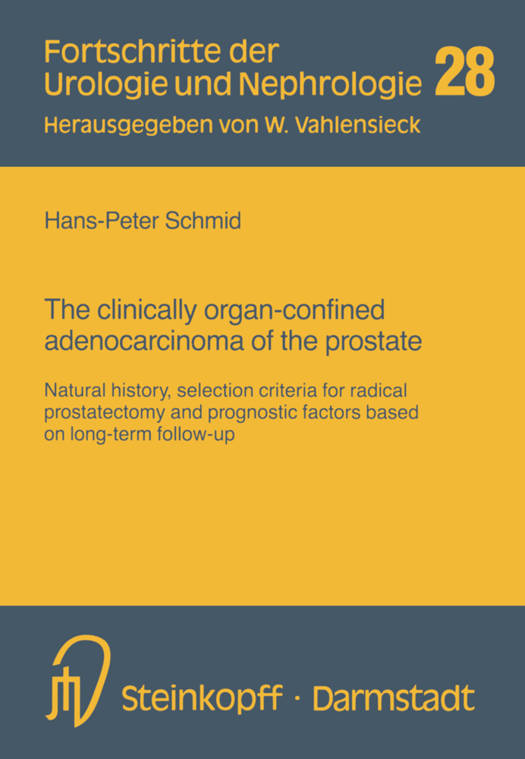
Je cadeautjes zeker op tijd in huis hebben voor de feestdagen? Kom langs in onze winkels en vind het perfecte geschenk!
- Afhalen na 1 uur in een winkel met voorraad
- Gratis thuislevering in België vanaf € 30
- Ruim aanbod met 7 miljoen producten
Je cadeautjes zeker op tijd in huis hebben voor de feestdagen? Kom langs in onze winkels en vind het perfecte geschenk!
- Afhalen na 1 uur in een winkel met voorraad
- Gratis thuislevering in België vanaf € 30
- Ruim aanbod met 7 miljoen producten
Zoeken
The Clinically Organ-Confined Adenocarcinoma of the Prostate
Natural History, Selection Criteria for Radical Prostatectomy and Prognostic Factors Based on Long-Term Follow-Up
€ 153,95
+ 307 punten
Omschrijving
Dr. Hans-Peter Schmid has addressed in this monograph the basic dilemmas surrounding prostate cancer. These dilemmas include the 40 % histologic incidence of invasive cancer in men in comparison to a 3 % death rate, the extraordinary slow doubling time of four to five years for untreated early clinical stages (T1 and T2 cancers), the limited life span of even healthy men over 70 years of age, and the national and international debates of how to treat this cancer. It is important, however, to recognize that despite these uncertainties, prostate cancer is probably the most predictive of all human solid tumors. Dr. Schmid has addressed the basis for much of this predictability in this monograph. The level of serum PSA and its rate of increase in the untreated patient with a prostate size of less than 50 grams is undoub- tedly the most useful of all measurements in predicting volume and grade of the cancer, but it is closely followed by assessment of the extent and percent of grade 4 and 5 cancer in six systematic, spatially separated biopsies. Estimating the amount of suspected cancer on digital rectal examination by assigning a clinical stage is useful, but far less quantitative than PSA and systematic biopsies. The Basel series in this monograph adds strong support to these basic concepts. April 1994 ThomasA. Stamey, M. D. Professor and Chairman Department of Urology Stanford University School of Medicine Stanford, California, USA v Contents Preface. . . . . . . . . . . . . . . . . . . . . . . . . . . . . . . . . . . . . . . . V I. 1 Introduction and overview . . . . . . . . . . . . . . . . . . . . . . . . . . .
Specificaties
Betrokkenen
- Uitgeverij:
Inhoud
- Aantal bladzijden:
- 74
- Taal:
- Engels
- Reeks:
- Reeksnummer:
- nr. 28
Eigenschappen
- Productcode (EAN):
- 9783798509986
- Verschijningsdatum:
- 31/08/1994
- Uitvoering:
- Paperback
- Formaat:
- Trade paperback (VS)
- Afmetingen:
- 170 mm x 244 mm
- Gewicht:
- 149 g

Alleen bij Standaard Boekhandel
+ 307 punten op je klantenkaart van Standaard Boekhandel
Beoordelingen
We publiceren alleen reviews die voldoen aan de voorwaarden voor reviews. Bekijk onze voorwaarden voor reviews.








